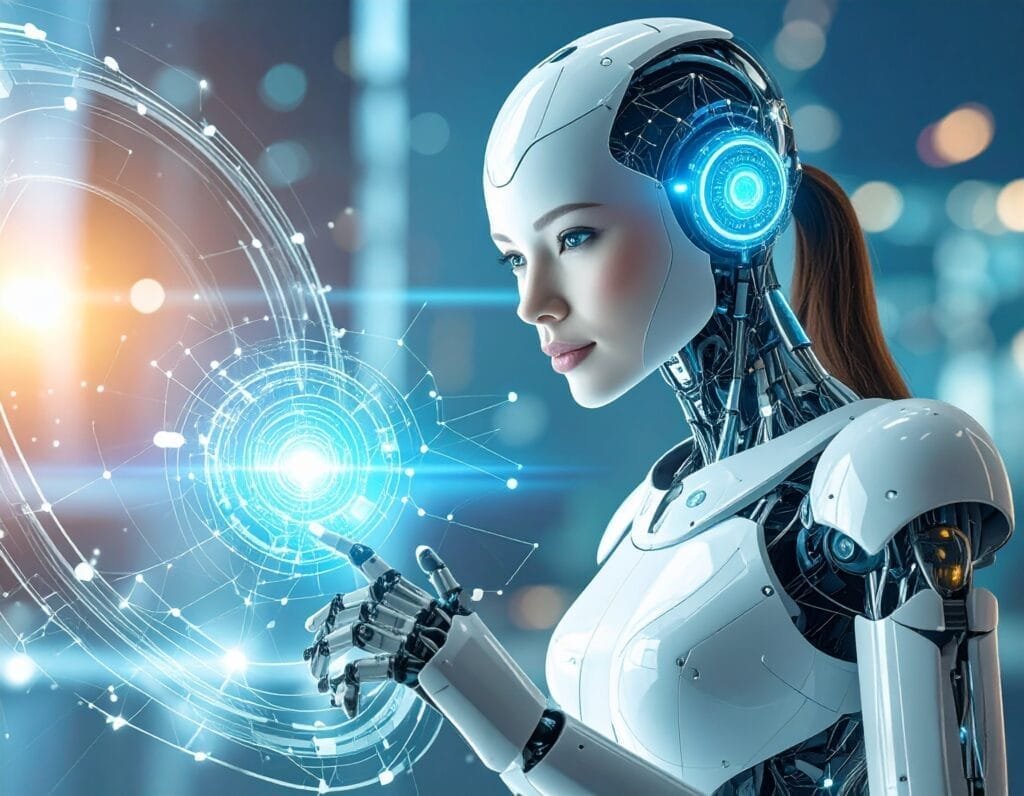Artificial Intelligence and Daily Life: How Is It Shaping Our Future?

Artificial Intelligence (AI), just a few decades ago, was the stuff of science fiction novels and movies. Today, however, we use it without even realizing it-while shopping online, watching a movie, talking to our phone’s assistant, or scrolling through social media. This rapid rise of technology is not only transforming our devices but also reshaping the way we live.
So, in what areas is AI being used in our daily lives, what conveniences does it offer, and what kind of world awaits us in the future?
What Is Artificial Intelligence?
In simple terms, artificial intelligence is the ability of computers and machines to perform tasks that typically require human intelligence. These tasks include learning, problem-solving, decision-making, understanding speech, and even creativity. Thanks to methods like machine learning, deep learning, and natural language processing (NLP), AI is becoming increasingly complex and more human-like every day.
Applications of AI in Daily Life
1. Healthcare
AI is revolutionizing healthcare. Algorithms can assist doctors in the early detection of diseases such as cancer. Smartwatches and wearable devices can monitor heart rhythms and warn users of potential risks. Personalized treatment plans tailored to an individual’s genetic makeup and lifestyle can also be developed with AI support.
2. Education
In education, AI offers personalized learning experiences based on students’ individual needs. Online courses can adapt content to each learner’s pace and progress. For example, a language-learning app may analyze common mistakes and provide customized exercises targeting those weak spots.
3. Finance
In banking and finance, AI is used for everything from fraud detection to investment strategies. When unusual activity is spotted on your credit card, it’s often AI-driven security systems that flag it. AI-powered robo-advisors can also suggest investment portfolios for clients.
4. Transportation
Autonomous vehicles are among the most talked-about AI applications in transportation. Companies like Tesla and Waymo are leading developments in self-driving car technology. Beyond that, smart traffic management systems powered by AI are helping reduce accidents and congestion in cities.
5. E-Commerce and Social Media
You’ve probably noticed the “recommended for you” section while shopping online. These suggestions are generated by AI algorithms that analyze your purchasing habits. Similarly, the content you see on social media feeds is ranked according to your interests.
6. Smart Home Technologies
AI-powered smart home assistants (Amazon Alexa, Google Assistant, Siri) and IoT devices make our homes more comfortable. Giving voice commands to turn off the lights, play music, or check the weather has become part of everyday life.
| Field | Usage Examples | Impacts |
|---|---|---|
| Healthcare | Early diagnosis systems, personal health apps | Faster and more accurate diagnoses, personal health monitoring |
| Education | Smart learning platforms, language learning apps | Personalized learning experiences |
| Finance | Fraud prevention, algorithmic investing | Safer and faster transactions |
| Transportation | Autonomous vehicles, smart traffic management | Safer and more efficient transportation |
| E-commerce | Personalized product recommendations, chatbot support | Enhanced user experience |
| Home Technologies | Smart assistants (Alexa, Siri), IoT devices | More comfortable and efficient living spaces |
AI in Business
For companies, AI has become the key to gaining a competitive advantage. Automation allows factories to increase production speed. In customer service, chatbots provide 24/7 assistance while reducing costs. Through data analysis, businesses can process millions of rows of information within seconds to make strategic decisions about the future.
AI is also creating new career paths. Data scientists, AI engineers, and ethics consultants are now among the most in-demand professionals in the job market. At the same time, however, routine jobs are increasingly being replaced by automation.
Advantages and Risks
Advantages of AI include:
- More efficient business processes
- Faster and more accurate decision-making
- Personalized experiences
- Early disease detection and improved treatment methods
However, the risks should not be ignored:
- Privacy and data security concerns
- Job losses due to automation
- The possibility of biased or incorrect decisions
- Ethical challenges and accountability issues
Future Trends
The future of AI is both exciting and transformative:
- Smart Cities: Urban areas managed through AI for traffic, energy, and security.
- Personal Assistants: AI systems that plan our daily lives, monitor our health, and even handle our shopping.
- Creative AI: Systems that contribute to art, music, and writing, complementing human creativity.
In Conclusion
AI has become a driving force of transformation not only in the tech world but also in our everyday lives. From healthcare to transportation, from education to business, it makes life easier in countless ways. Yet, the ethical and security aspects must also be carefully considered.
There is no doubt that AI will continue to spread even further in the future. The real challenge is to ensure that this technology is used for the benefit of humanity and within the right boundaries.
🎧 You can also listen to this article as a podcast (created with NotebookLM).